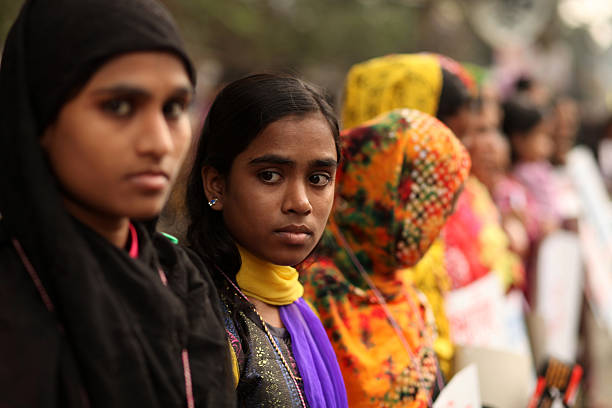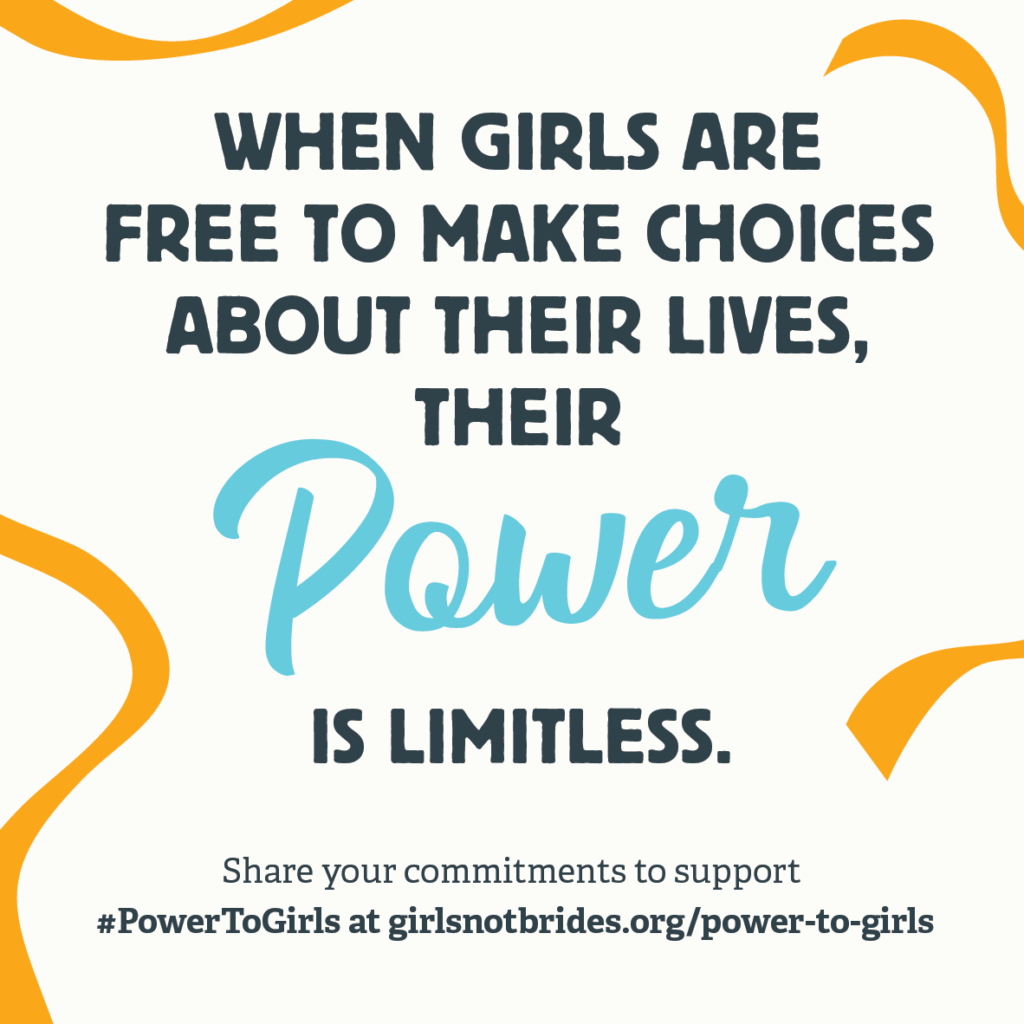
On February 16, 2022, the organization Girls Not Brides presented its Partnership Strategy for 2022-2025. With 10 years of advocacy experience, this action plan is intended to be a roadmap for the future in addressing child marriage for over 1,500 partner organizations working in their own context in over 100 countries.
African Girls Can became a partner in Girls Not Brides in 2021 because the issues of child marriage and girls’ education are completely linked.
To address child marriage, it is crucial to advance adolescent girls’ right and agency.

 Girls Not Brides has launched a campaign address the rights of all girls to decide who and if and when to marry. Check out their campaign toolkit.
Girls Not Brides has launched a campaign address the rights of all girls to decide who and if and when to marry. Check out their campaign toolkit.
The pandemic has rolled back some of the successes reported in data from 2018. However, it’s not just Covid-19, but climate change and conflict are putting girls at risk. These crises affect not just girls, but entire communities, countries, and economies.
The Partnership Strategy is the result of a 12-month process, including member surveys, focus groups, and the Member Advisory Council. It will enable members to have a shared goal and build synergies. Collectively, we can inspire global change.
Key Learnings
- We need to diversify the movement to include those who are not traditionally involved.
- It is a different world than 10 years ago. Don’t forget the girls living in humanitarian crisis settings.
- Gender equality is the main purpose. Transformative change needs to address everyone and anyone affected by child marriage.
- There is tremendous expertise and knowledge in our group. We know more and are positioned to learn from each other.
- We must hold governments accountable and involve civil society organizations.
- Change really happens at the community level.
- We should not just talk about girls, but include girls’ actual voices. They can influence their peers and families.
- Don’t forget married girls or girls with disabilities. They should have the same rights as other girls.
6 Shared Goals
- Understand that communities are the drivers of change.
- Campaign for changes in governments’ laws and policies (all ministries – health, education, etc.) and foster civil society participation.
- Engage the global community, not just for commitments on paper, but funding.
- Ensure funding is available to reach those working at the community level, focusing on girl and women-led organizations.
- Utilize new data and evidence to inform decision making and disseminate information to civil society organizations.
- Foster collaboration within the Girls Not Brides partnership for greater impact. We need to share training and skills, not just funding, and we must campaign collectively.
Change at the Girl Level
Changing social and gender norms are key parts of this agenda. The influential role of religious and traditional leaders was pointed out by the audience. Phoebe Mulinde of African Girls Can suggested targeting the boda boda (motorcycle taxi) drivers with an information campaign.
Learn more about the issue of child marriage.

Child Marriage is a global issue and tradition and poverty are at the root of the problem. Under age marriages occur despite laws prohibiting them – marriage under the age of 18 is still at a rate of about 20% for girls in many countries.

